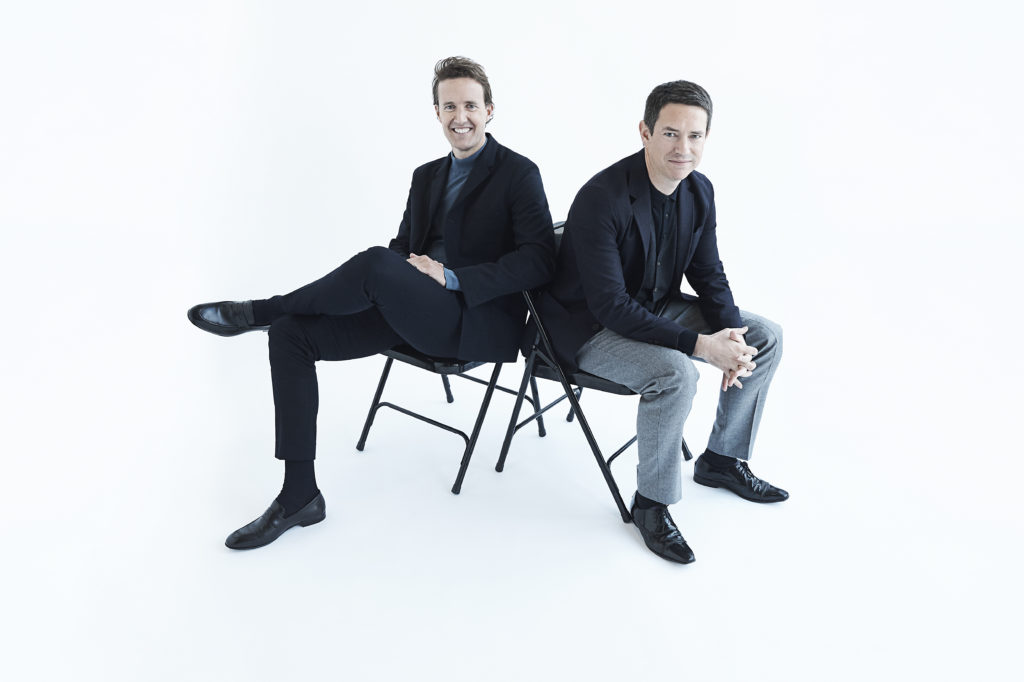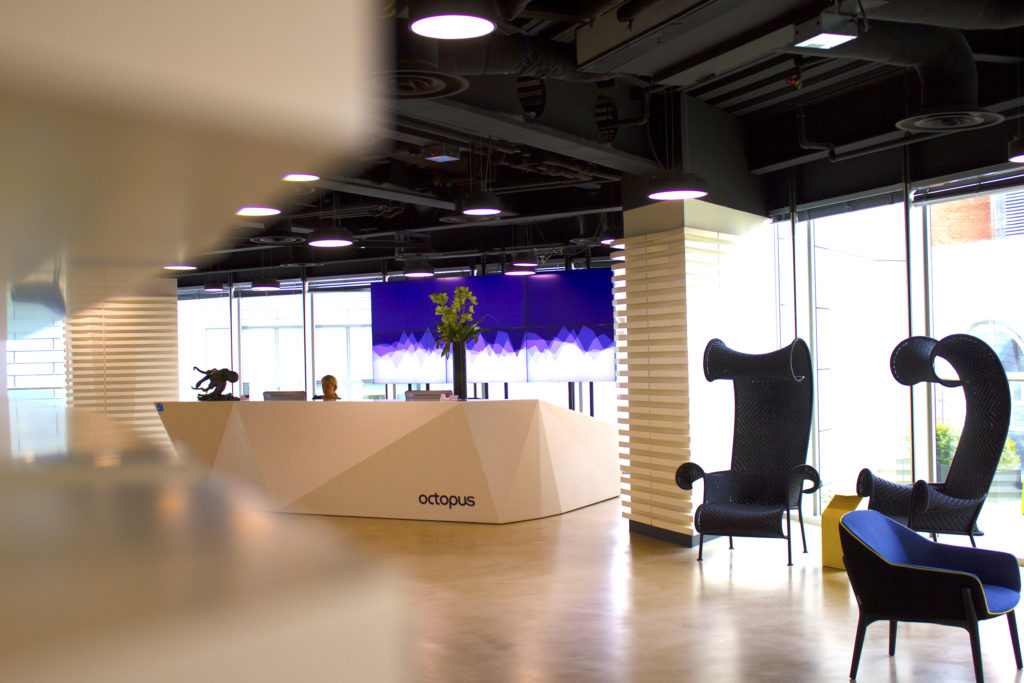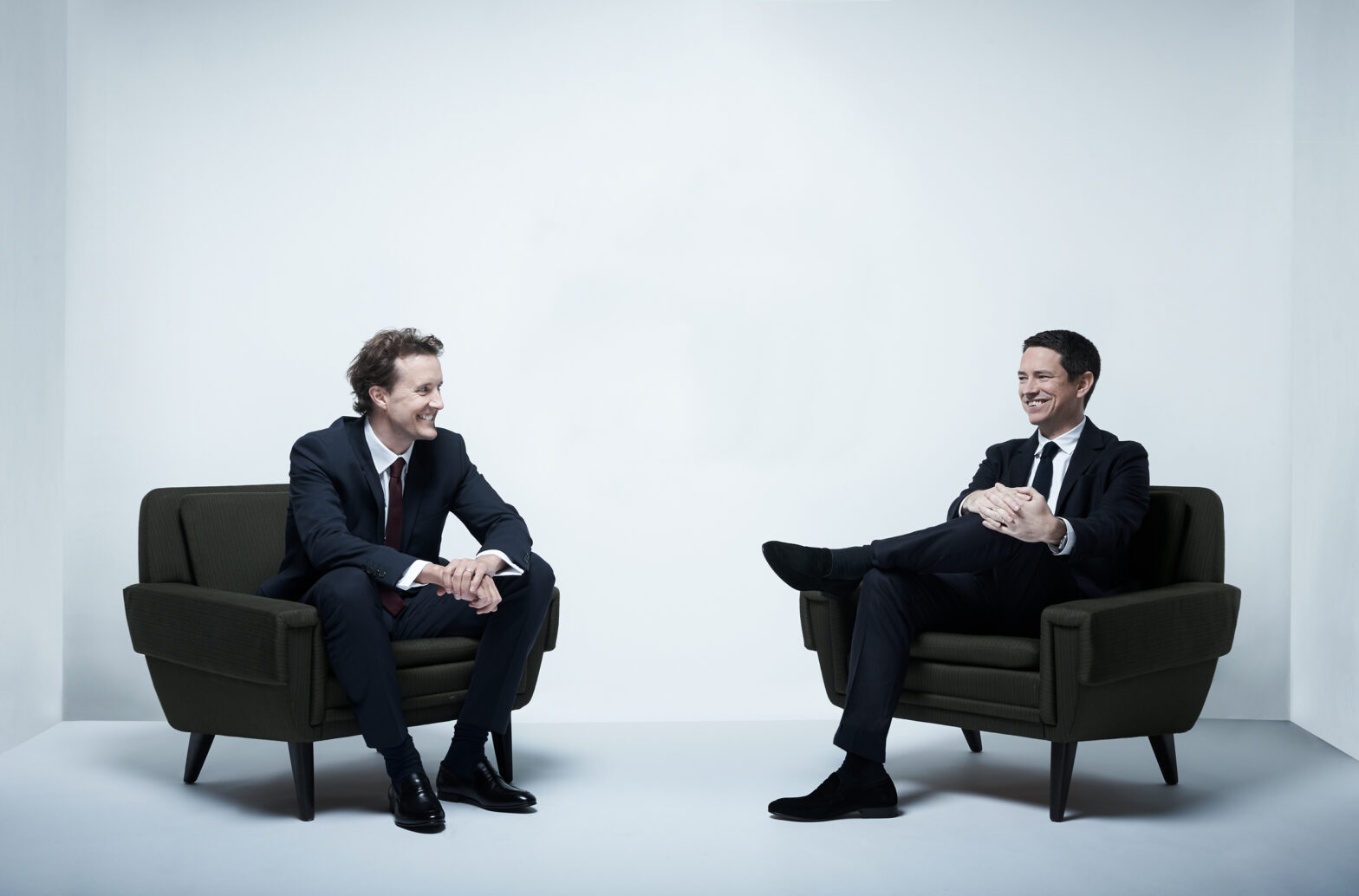After setting out in 2000 armed with one laptop, a phone line, plenty of determination and a vision to disrupt complacent industries, Octopus Group co-founders Chris Hulatt (CH) and Simon Rogerson (SR) have expanded their offering from venture capital to a group of businesses with services ranging from energy supply to healthcare assets.
The company, based at its Holborn offices in London, helps companies scale up domestically and internationally with its multi-million-pound fund.
This interview forms part of a series of articles in which we seek to understand what VCTs are out there in the UK and what sort of companies they tend to invest in and how much this tends to be.
In this interview, we speak to them about how entrepreneurial qualities have changed in recent years, the role of sustainability in modern business, and how the advancement of technology has impacted investment decisions.
How does your ventures offering differ from rivals?
SR: We’re trying to scale businesses with global ambitions from the very early stages through to truly high valuations. Our biggest success is Zoopla [the first private VCT holding ever to have grown to be worth £1 billion].
We have a US office now and a Far East presence, a setup that allows these companies to fulfil their global ambitions. Some 60-70 per cent of our portfolio companies now have a presence outside of the UK.
Our Titan VCT broke the UK record for a VCT fundraising round after it gathered £120 million in the last four months of 2017.
When businesses outgrow the VCT from a funding perspective, we have the ability to invest with a new partnership that can take them to their potential, and a lot of competitors will stop at that point. That’s where the UK falls down a little bit; you find a lot of companies will change ownership at £100-150 million market value, because they don’t have the funding to back them to the tune of another, 10, 20 or 30 million in capital, which is what we’re able to do through our funds.
What sectors and companies excite you currently?
SR: There’s lots of disruption in financial services. We [Hulatt and Rogerson] don’t sit on the investment committee within the ventures business so we don’t make these investment decisions, but when we see what they’re doing and look at the balance sheet and how we’re deploying it, lots of capital is going to that part of the market.
CH: The opportunity for disruption is enormous in the insurance sector. One of our portfolio companies Bought By Many is a great poster child for what a business can achieve in a massive sector that hasn’t had much innovation. The big players are taking note but there’s not a lot they can do about it, it’s just a different way of doing things run a by a dedicated team with no legacy.
SR: Big Health [which offers digital programs to promote strong mental health] is an interesting one because, very early in their business they decided to go straight to the US. That’s unusual because most of our portfolio companies wait for scale before they do that.
Companies now feel the need to take responsibility for whats going on in their employee’s lives and they’re doing something people can really connect to; they’re also working with some very large US companies that tend to be at the forefront of adopting this kind of stuff.
If you can address your employees’ mental health by making the right help available to people and in a digital way, you can save a lot of money on your workforce with solutions that just wouldn’t have been possible a decade ago.

Have the qualities you look for in an entrepreneur changed in recent times?
SR: Well, the bit that’s consistent over time is that the best entrepreneurs bleed energy. They have an insatiable appetite to work very hard, and that won’t change. They will have a personal mission – to put something right, to make the world a better place; not necessarily just to make a heap of money. And their employees will love that; it’s what they connect with and what the customers connect with.
In terms of the CEOs, today we look for an deep understanding of technology; it has to be at the core of your business. It’s not something you can outsource to someone else any more; you will not scale or disrupt unless you can understand and apply technology to your business yourself. Take [Octopus Group brand] Octopus Energy, the guy running that is a techie and 90 per cent of the people who work for him are techies. And there are 150 of them. That’s why you can build a business model which is inherently way more efficient than any of the Big Six. We don’t have thousands of people in a call centre because we don’t need them.
Are today’s entrepreneurs braver, more ambitious, than those of past years?
CH: Yes. In the UK, years ago if you would wave a cheque for £10 million at a business that had only just got going they would rush to sell, but now they’re keener to build bigger businesses. We want to find people who want to build 200 million, 400 million, 800 million pound companies. We’re not looking to back them when they’re worth £5 million and sell them when they’re worth £20 million, we’re looking for people who want to travel the full journey. Ten years ago it was harder to find those entrepreneurs, but now more are thinking globally.
If all you want to do is build a UK-centric business you’ll be limited. You might even find someone else takes your idea, does it globally and comes back and eats your lunch in the UK.
“Now people are tackling markets that historically were considered difficult, like Asia, the US; the enthusiasm to do that now is higher”
How does the advancement of technology affect your investment decisions?
SR: The world’s changing quicker today than its ever changed before and tech is largely responsible for that. The question is, how long can a business stay expert within its sector? A new normal comes out all the time. So you need to invest in people who are not just at the cutting edge of technology now but who will stay at the cutting edge. That requires you to continue to innovate and have that entrepreneurial culture within your business, and often as businesses scale that’s what they lose because suddenly they have a legacy business they have to protect.
[Fintech innovation arm of Octopus Group] Octopus Labs is about innovation and entrepreneurship, within a bigger environment. Unless you have people dedicated to thinking about that you might wake up one day and be left behind.
The companies that are most able to adapt to change will be the most successful.

How has the issue of sustainability changed the way businesses operate in recent years?
SR: The whole issue of sustainability has changed utterly in the past few years. Two or three years ago, no business ever called up saying we want to buy renewable energy, now we have lots of discussions of that type. Do you want to be the only supermarket chain that isn’t able to say you’re powered by renewables in some way? It matters to staff, shareholders, the board, customers, and if you ignore it you do so at your peril.
Now you can’t find a business that doesn’t talk about sustainability in its annual report. For example, how do you decarbonise your fleet of vehicles? There’s a lot of talk about this sort of thing.
One of my colleagues recently saw a demonstration of an electric rubbish truck. Every aspect of land transport will be changed and it shouldn’t take 25 years for that, it can happen in five or ten. So there’s an opportunity for those to provide the tech and financial solutions to catalyse that.
As a business that has introduced subsidiary offerings, how do you effectively manage multiple brands under the same parent company?
You want to keep them under the umbrella of the same brand but run them separately. The management team we put in place have to bleed Octopus. If you’re a customer of Octopus Investments and Octopus Energy, you need to feel like you’re the customer of the same company but when it comes to running them you have to protect them.
As a start-up [like our energy offering], you need massive flexibility and you need to move as fast as you can. And in a larger organisation you can’t do that, so you need that isolation.
What about comply culture; how do you retain it?
CH: When they scale, every rapidly-growing business has to grapple with the company culture issue. If you’re a business with multiple locations, do you care about your culture or don’t you? They don’t worry about integrating with businesses. Some people joined us here from organisations that went through mergers; they left totally unsuitable businesses that were just rammed together and it doesn’t work. We think very long term and focus on being independent forever and religiously guard how we think about the culture.
“I’ve heard people say ‘I don’t care about the culture because I’ll sell the business in ten year’s time, it’ll be someone else’s problem”
We are a majority employee owned business too, 70 per cent is owned by employees and 30 per cent by early investors, friends and family of the founders, which from an employee perspective makes a material difference because not only do you care about the success of the business but you feel like you have a role in contributing to its development.
Do you have a single piece of advice for scale-ups?
CH: One pieces of advice is get all your staff involved in owning a stake in the business. We run a liquidity event every year and invite all our staff to buy or sell shares, and we have 700 people take part every year. They’re engaged and taking part in it and it’s great. Even if someone’s invested £100 they will feel differently about their place in the business. Around 85 per cent of our people take part in our monthly share save scheme, every business should give options to their staff these things are really important. It changes mindset. People care.






